Taliban can take over Afghan capital in 90 days: US intelligence
A new US military assessment says the Taliban could isolate Afghanistan's capital, Kabul, in 30 days and potentially take it over in 90 days, amid the militants' rapid advances across the war-ravaged country.
"But this is not a foregone conclusion," a US defense official told Reuters anonymously on Wednesday, referring to the assessment. He claimed Afghan security forces could reverse that momentum by putting up more resistance against the militants.
Another person familiar with the intelligence told NatSec Daily that it might take the Taliban militants up to six months to seize control of the entire capital city. "That's how fluid the situation is," the unnamed source said.
The Taliban have captured ten provincial capitals in Afghanistan within six days.
On Thursday, the militants captured Ghazni City in southern Afghanistan. The provincial capital city is located just 150 kilometers (95 miles) from Kabul. Nasir Ahmad Faqiri, head of the provincial council, told AFP on Thursday, "The Taliban took control of the key areas of the city — the governor's office, the police headquarters and the prison."
Violence has been surging across Afghanistan amid the withdrawal of US-led foreign forces from the country. The 2001 invasion of Afghanistan ousted the Taliban from power, but it worsened the security situation in the country.
The Taliban militants are continuing to wrest control of strategic northern provinces in Afghanistan, which have traditionally been the bastion of anti-Taliban resistance. Thousands of people have fled their homes in the north for the relative safety of Kabul and other urban centers.
The pace of the Taliban's advances have surprised US officials. Until last month, US intelligence assessments warned that the Afghan government could fall in six months. US President Joe Biden has urged Afghanistan's leaders to fight for their homeland.
US weighing possible evacuation of Kabul embassy: Sources
Meanwhile, three sources who also spoke on the condition of anonymity told NatSec Daily that there were internal discussions underway about closing the US Embassy in Kabul amid the ongoing offensives by the Taliban militants.
One of the sources said the mission could be evacuated by the end of the month, while another said there had been a continuous conversation about how many American diplomats were needed in Kabul in light of the danger.
The US State Department did not deny an evacuation was being weighed. "As we do for every diplomatic post in a challenging security environment, we will evaluate threats daily and make decisions that are in interests of individuals serving at our embassy about how to keep them safe," a State Department official said, adding that the embassy "has been on ordered departure status since April 27."
The latest developments come as fighting between the Taliban militants and Afghan government forces is soaring, and there is little sign that the government can turn the tide following the militant group's recent gains.
Earlier in the day, Afghan Foreign Minister Mohammad Hanif Atmar said, "We are probably experiencing the most massive, brutal, and opportunistic military campaign of violence and terror by the Taliban in the history of our country."
Afghan interior minister unveils plan to push back Taliban
Separately on Wednesday, Afghanistan Interior Minister General Abdul Sattar Mirzakwal said the government was arming local groups as part of a three-phase plan to push back the Taliban.
Mirzakwal made the remarks in an exclusive interview with Al Jazeera, adding that Afghan forces were also focusing on trying to secure main highways, large cities, and border crossings.
"We are working in three phases. The first is to stop the defeats [of the government forces], the second is to re-gather our forces to create security rings around the cities. All those soldiers that abandoned their posts, we're bringing them back to their posts. The third is to begin offensive operations," Mirzakwal said. "At the moment, we're moving into the second phase."
Mirzakwal, who took charge of Afghanistan's police force five weeks ago, said the government was throwing support behind regional militias and public uprising forces. He said the Kabul government was delegating power to local leaders to recruit and arm individuals within their community to fight against the Taliban, stressing that all their members would eventually merge into the Afghan national security forces.
Mirzakwal said the main causes of the government's defeats were the loss of control over roads and highways and limited air support.
The Afghan official asked the Taliban militants to stop the violence and sit down at the negotiating table to find solutions. "Let's come and sit together and make a coalition government, one that would be acceptable to all sides. The sooner we do that, the better," he said.
Former US President Donald Trump agreed to pull out forces from Afghanistan under a deal with the Taliban last year. The militants pledged not to attack the withdrawing foreign forces. But they made no promise not to attack Afghan government forces or people.
Iran renews warning about Israeli intentions amid diplomatic engagement with US
Our missiles have put Zionist regime in its place: Iran’s top security official
VIDEO | Iran's Beirut Embassy marks Islamic Revolution anniversary
VIDEO | Protests renewed as Israel advances execution law for Palestinian prisoners
VIDEO | Gazans rally against attempts at undermining UNRWA
Melina Asadi is a testament to Israeli, American crimes: General Vahidi
Israel kills five more Palestinians in Gaza amid ceasefire violations
Israeli minister says Netanyahu's new measures 'de facto sovereignty' over West Bank


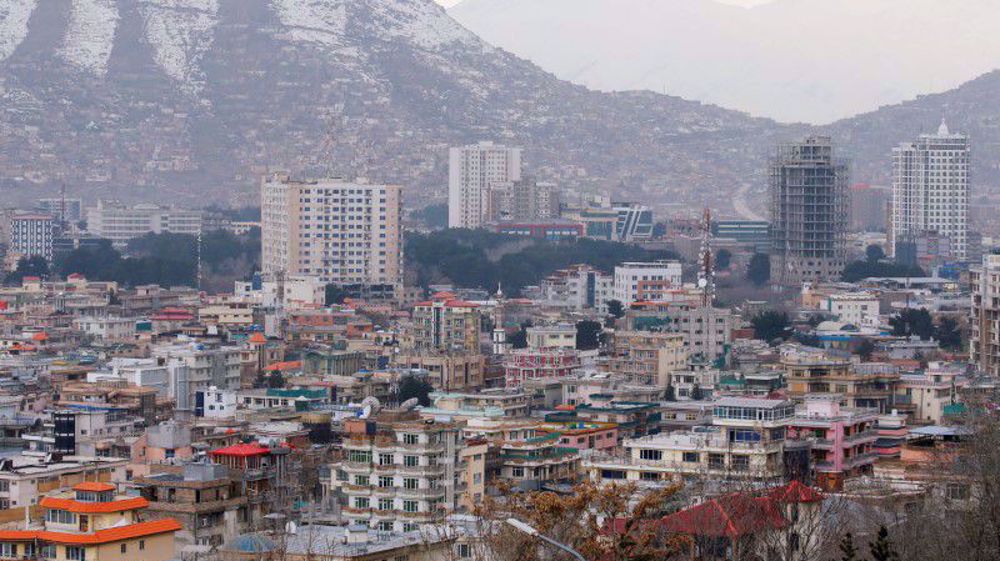
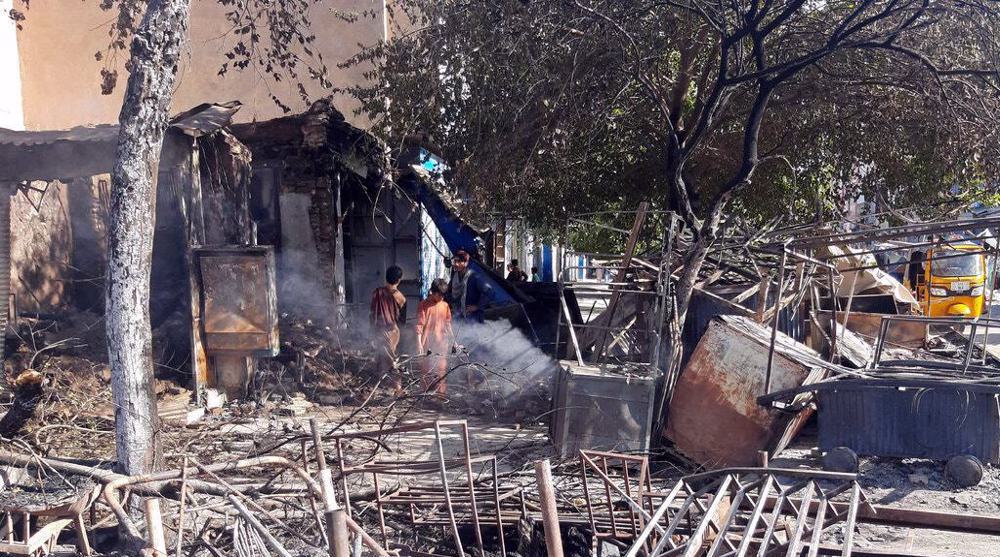
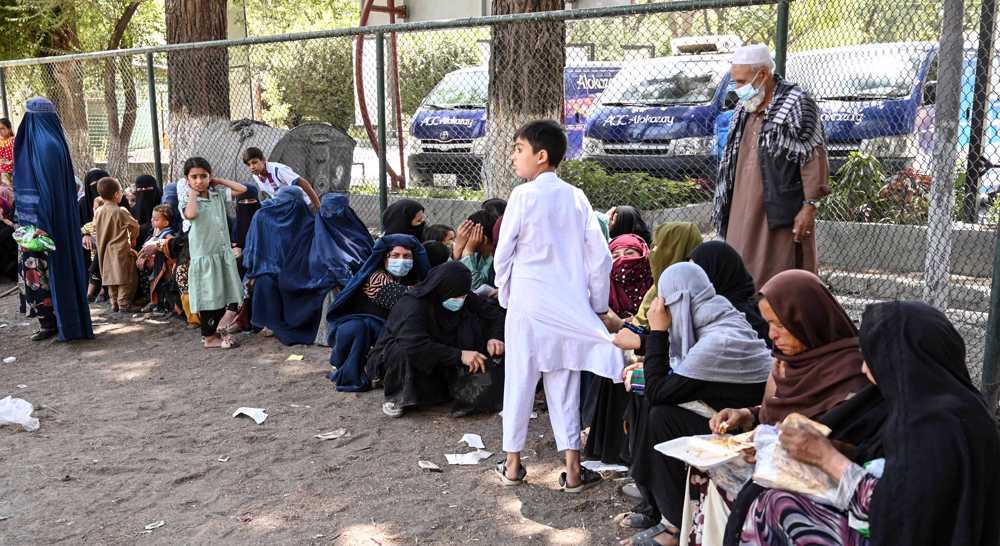
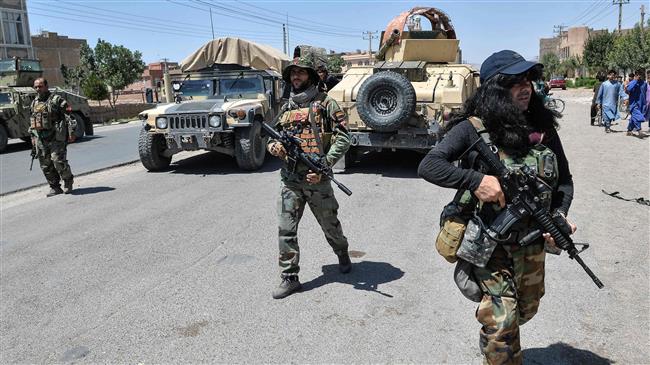
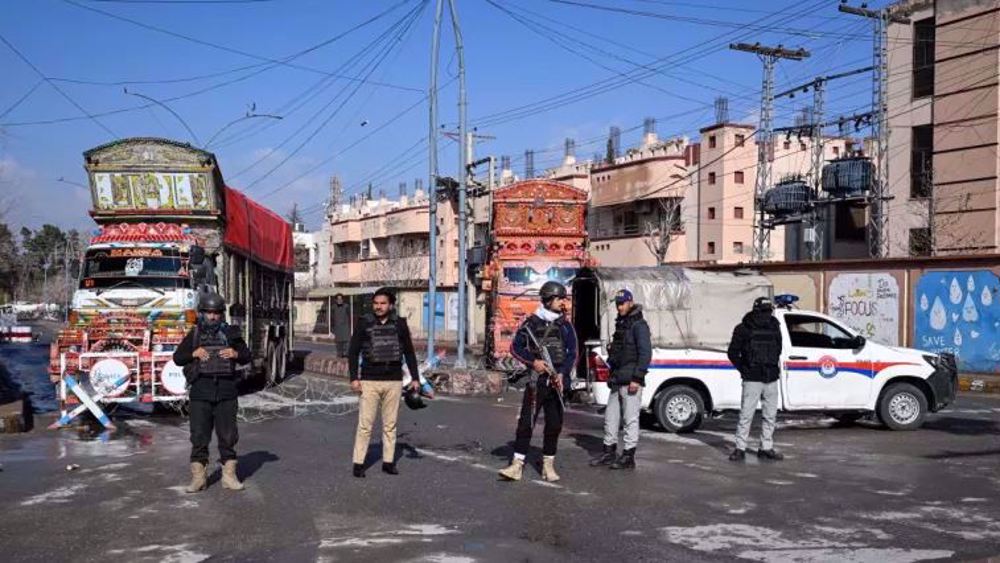
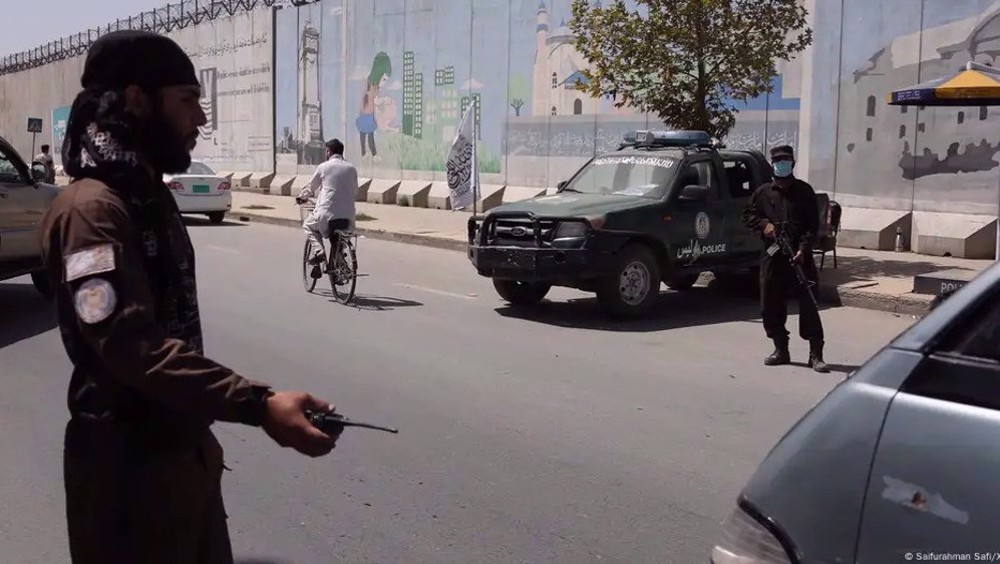
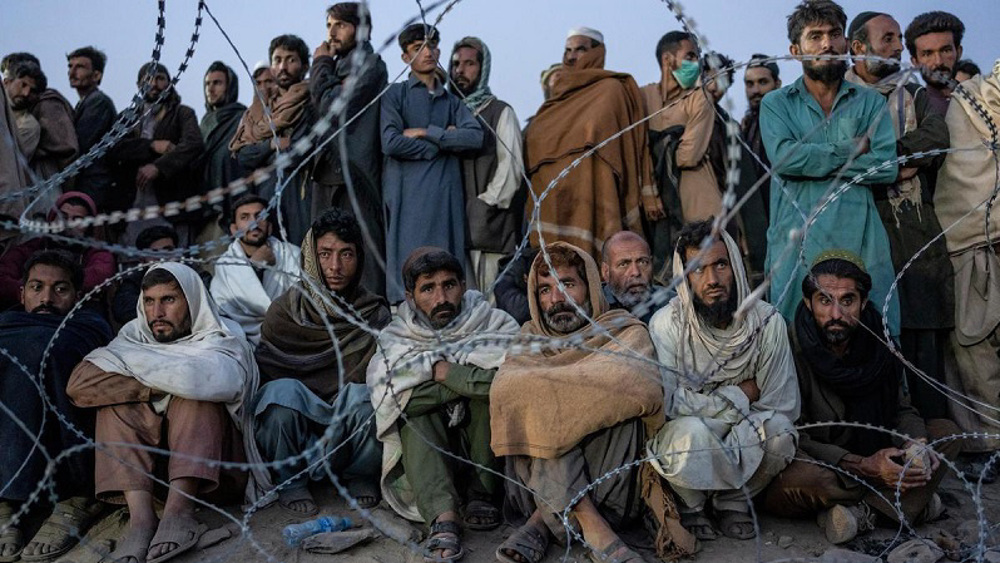



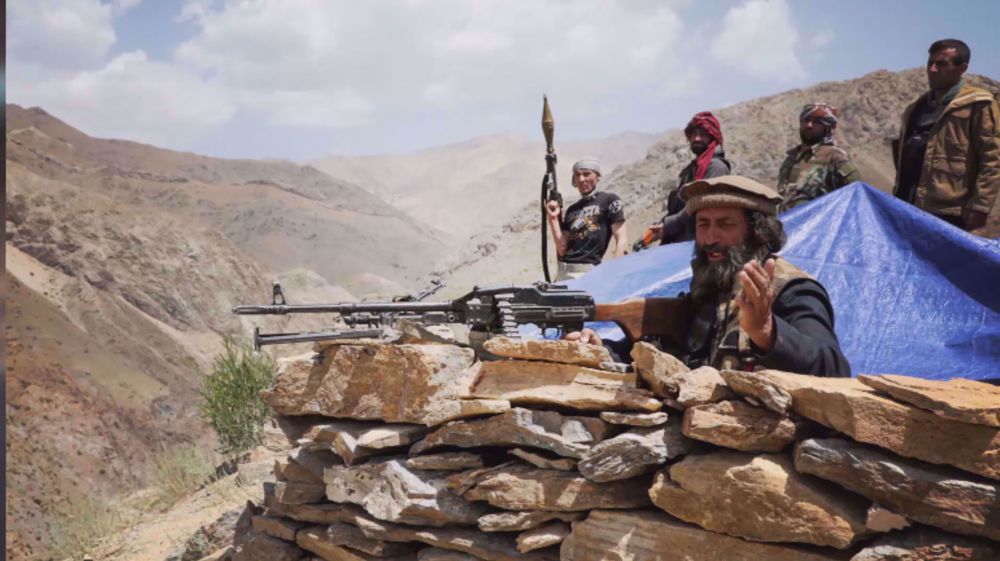
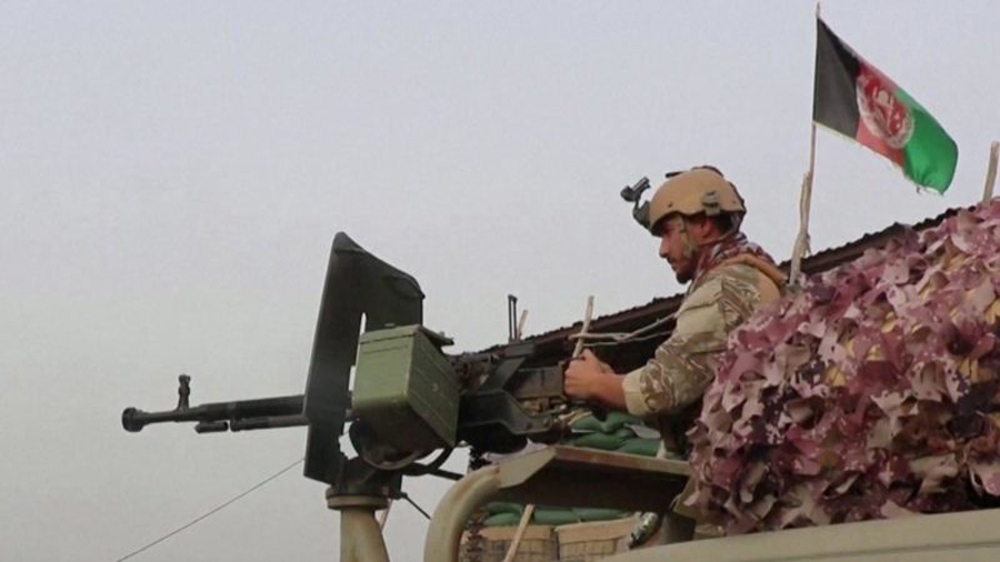
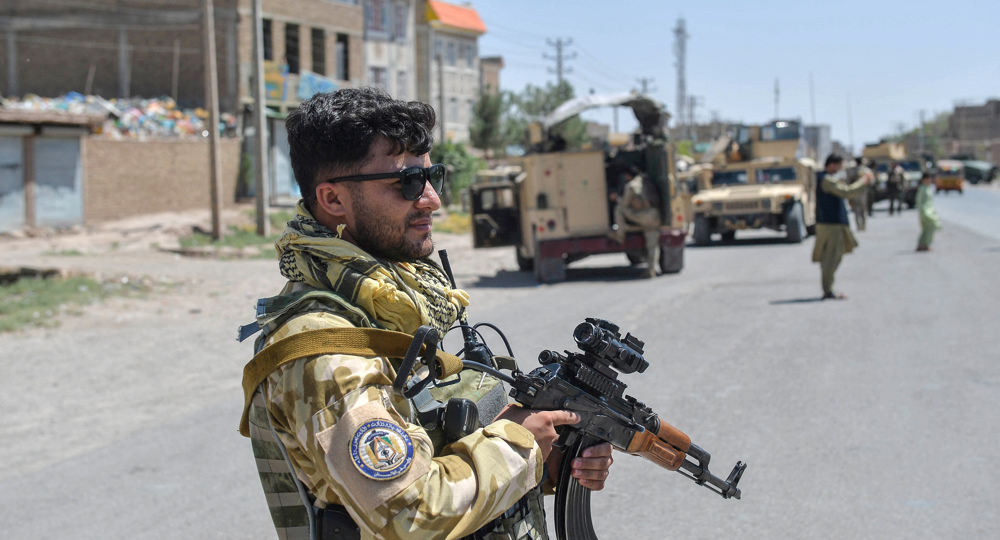

 This makes it easy to access the Press TV website
This makes it easy to access the Press TV website